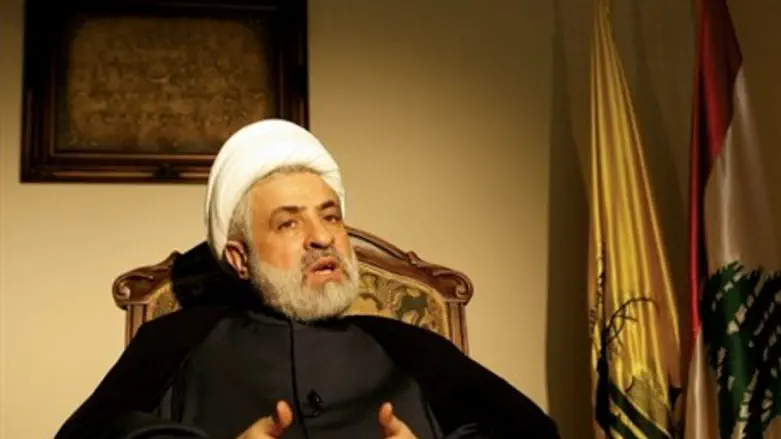
Hizbullah rejected billions of aid dollars offered to the party in exchange for disarming, the movement's deputy secretary-general said Monday.
"Billions of dollars have been offered to us to rebuild the deprived south Lebanon and in return to surrender our arms and stop the work of the resistance," Naim Qassem said Monday.
"But we told them we're not in need [of their money] and the resistance will go on regardless of the consequences,” he added.
Qassem also said that the price the people pays for Hizbullah's resistance is less than the cost of 'Israeli occupation.'
“Israel has at different times initiated aggression against Lebanon and if we compare the cost of occupation and aggression with the results of liberation and independence, we would find that we have regained our land and freedom with liberation, making the cost of occupation higher than the cost of liberation,” Qassem said.
Lawmakers of the March 14 coalition, led by former prime minister Saad Hariri, have repeatedly called for Hizbullah to surrender its arms to the Lebanese state describing the movement's independent paramilitary capacity as illegitimate.
Hizbullah and its allies in the March 8 alliance, however, claim the “people, army, resistance” formula is the only way to defend the country. Qassem also described the resistance as way to achieve 'liberation.'
“If it wasn't for the July war, Israel would be regularly assassinating people, entering villages and arresting a great number of people and it would be preparing for naturalization and the political solution that suits it best … but the resistance has deterred Israel and it has brought victory and liberation in 2000 and created a real, tough deterrence in the face of the Israeli project,” Qassem said.
"[The] successful resistance in 2006 proved [Hizbullah's] necessity," Qassem argued.
Opposition leaders, however, note it was Hizbullah's actions - violating the Israel-Lebanon border to kidnap Israeli soldiers - that sparked the 2006 war in the first place.
Qassem also responded to allegations from rival political leaders who have accused Hizbullah of using their weapons internally against Lebanese citizens and as a tool of political pressure.
“We have created a balance between the resistance and our work in internal politics. We consider that the resistance's arms are directed at Israel and that internally we work according to an organized mechanism … Therefore, the theory that the resistance uses its arsenal as a pressure tactic has been refuted by the resistance and Hezbollah’s performance which are harmonious with respecting constitutional institutions and the rule of the Lebanese system.”
The UN-backed Special Tribunal for Lebanon has indicted four Hizbullah members for the 14 February 2005 assassination of Lebanese prime minister Rafiq Hariri citing "political motivations" on Hizbullah's part.